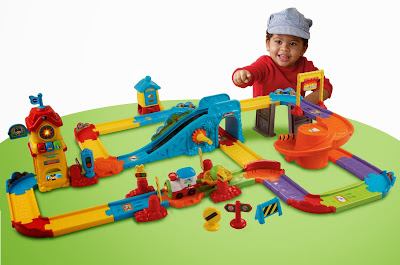Children are introduced to math concepts before they even enter school. This is a good thing, as math isn’t always easy, yet it’s one of those subjects that’s important all throughout school, college and life! There are a number toys and activities you can use to improve your child’s math skills and comfort level. Here are a few ideas:
Blocks have been around for centuries as one of the first toys for a child. This simple toy can now be used to begin the introduction of math to young children. How? Using blocks is great to build the foundation of math, such as adding and subtracting. This has increased your power to improve your child’s math attitude. This is one toy you should definitely buy for your young child.
Your parents may have used math flash cards with you when you were a child, and this activity is still popular today due to its success. The drills with math flash cards take your child through many years of learning the basics of math. This activity encourages your child to continue to build upon his or her math skills to the point that the answers come quickly.
As a parent you are your child’s first teacher. This begins with learning how to count from 1 to 10, and grows when your child’s writing skills develop. Taking the time to teach your child how to write the numbers clearly is a great basic concept to improve your child’s math understanding, as there will be no guessing on what the numbers are.
Simple activities that you do with your child are more likely to improve your child’s math understanding. Look for examples of math being used on your outings with your child. Some of the popular examples include, purchasing items in stores, learning a new recipe, and understanding of the importance of paying bills on time. You can also make math fun, by letting children pay for items and having them count out the change for you. You’d be surprised how much they can enjoy it!
It’s not always about focusing solely upon math. It’s about knowing that your child has a life too. He or she may be involved with sporting events and student activities, which is part of a child’s development. Math can come into almost all aspect of everyday life, if you look out for the opportunities and make the most of them!
Wooden block toys
Blocks have been around for centuries as one of the first toys for a child. This simple toy can now be used to begin the introduction of math to young children. How? Using blocks is great to build the foundation of math, such as adding and subtracting. This has increased your power to improve your child’s math attitude. This is one toy you should definitely buy for your young child.
Flash cards
Your parents may have used math flash cards with you when you were a child, and this activity is still popular today due to its success. The drills with math flash cards take your child through many years of learning the basics of math. This activity encourages your child to continue to build upon his or her math skills to the point that the answers come quickly.
You are the teacher
As a parent you are your child’s first teacher. This begins with learning how to count from 1 to 10, and grows when your child’s writing skills develop. Taking the time to teach your child how to write the numbers clearly is a great basic concept to improve your child’s math understanding, as there will be no guessing on what the numbers are.
Daily activities
Simple activities that you do with your child are more likely to improve your child’s math understanding. Look for examples of math being used on your outings with your child. Some of the popular examples include, purchasing items in stores, learning a new recipe, and understanding of the importance of paying bills on time. You can also make math fun, by letting children pay for items and having them count out the change for you. You’d be surprised how much they can enjoy it!
It’s not always about focusing solely upon math. It’s about knowing that your child has a life too. He or she may be involved with sporting events and student activities, which is part of a child’s development. Math can come into almost all aspect of everyday life, if you look out for the opportunities and make the most of them!




























































